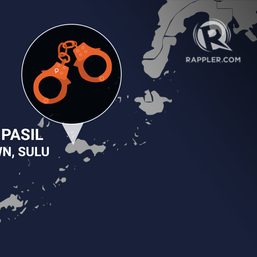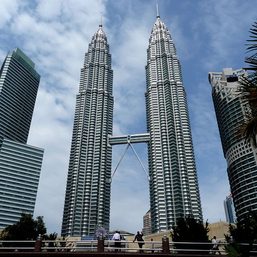SUMMARY
This is AI generated summarization, which may have errors. For context, always refer to the full article.

MANILA, Philippines – The Department of Foreign Affairs (DFA) said on Monday, March 14, that Chinese Ambassador to the Philippines Huang Xilian had been summoned to the agency after a Chinese navy vessel intruded, and later lingered, in the Sulu Sea earlier this year.
It is the second time Huang had been called to appear at the DFA, following an earlier directive last April 2021, when the Philippines expressed its “utmost displeasure” over the “illegal lingering presence” of Beijing’s ships around Julian Felipe Reef (Whitsun Reef) and other maritime zones in the West Philippine Sea.
The DFA said Huang was summoned through Acting Undersecretary Ma. Theresa Lazaro on Monday morning.
In line with Huang’s most recent appearance, the DFA said a People’s Liberation Army Navy (PLAN) Electronic Reconnaissance Ship (Dongdiao-class) with bow number 792 entered Philippine waters without permission. It reached the waters of the Cuyo Group of Islands in Palawan and Apo Island in Mindoro from January 29 to February 1, 2022.
While it was in Philippine waters, the Philippine Navy’s BRP Antonio Luna challenged the Chinese navy vessel and demanded it leave immediately, the DFA said.
The PLAN 792 vessel had alleged it was exercising “innocent passage,” although the DFA opposed this, saying it “did not follow a track that can be considered as continuous and expeditious, lingering in the Sulu Sea for three days.”
“PLAN 792 also continued its activities in Philippine waters despite being repeatedly directed by the BRP Antonio Luna to leave Philippine waters immediately,” the DFA said. Innocent passage is considered when ships take the quickest way through and without any activity besides crossing.
The DFA said that while the Philippines recognized the right of others to conduct innocent passage under Article 52 of the United Nations Convention on the Law of the Sea (UNCLOS), “the actions of PLAN 792 did not constitute innocent passage and violated Philippine sovereignty.”
During Huang’s appearance, Lazaro demanded that China respect Philippine territory and maritime jurisdiction, and comply with International law, particularly UNCLOS. The Philippines likewise demanded that China “direct its vessels to desist from entering Philippine waters uninvited and without permission.”
This is not the first time a Chinese navy vessel was spotted in Philippine archipelagic waters without prior notice to the Philippine government. Back in 2019, China’s aircraft carrier, the CV-16 Liaoning, passed through the Sibutu Passage, which is within Philippine archipelagic waters.
At the time of Liaoning’s passage, retired Supreme Court Justice Antonio Carpio called out China’s “double standard” because it exercised innocent passage without notifying the Philippines and yet it would not allow Philippine vessels free passage in waters it claims as its territory, even in the West Philippine Sea.
But this may be the first reported instance of a PLAN spy ship conducting operations in the Sulu Sea for an extended period of time, said maritime law expert Jay Batongbacal. The ship’s activities, which took place within Philippine archipelagic waters, also makes it subject to Philippine sovereignty, he added.
Batongbacal told Rappler, “Its movements do not only contravene the definition of innocent passage under UNCLOS Art (Article) 18 and 19(1), it also should be considered prejudicial to the security of the coastal State under Art 19(2)(c) specifically, all in relation to Art 52.”
The DFA further said that aside from the ship’s route making it suspect, violations also took place when it refused to follow the Philippines’ directive to leave its waters.
Defense Secretary Delfin Lorenzana earlier said that it was customary among navies to notify a country’s government before passing through its territorial waters, even if international maritime law entitles them to innocent passage. – Rappler.com
Add a comment
How does this make you feel?










There are no comments yet. Add your comment to start the conversation.